29 June – 1 July 2021, Bangkok , Thailand.
The International Conference on Advances in Information Technology (IAIT2021) is a premier forum to present and exchange ideas about recent technological advancements and breakthrough research in Information Technology. IAIT2021 will be the 12th in the series and hosted by the School of Information Technology, King Mongkut’s University of Technology Thonburi, Bangkok, Thailand.
The 21st century has witnessed a fast development of various information and communication technologies. At the same time, there has been a lot of efforts to use these information technologies for providing innovative and non-precedent services to the end users. Also, there are widespread applications of various information and communication technologies to different business, services and social sectors such as green convergence, next generation broadcasting and media, mobile convergence, financial technologies, healthcare, and several other smart applications. This year the core theme of this conference is “Intelligence and Innovation for Digital Business and Society,” focusing on the digital disruption of the ICT technologies and their impact on several business aspects and the society in general. IAIT2021 aims to be a unique global event for the researchers, academics and industry professionals and bring all of them under one roof for interaction and dissemination of information regarding the latest developments and applications in the emerging ICT centric applications for a futuristic digital business and society.
| – Deep learning and Neural Networks |
| – Image Processing and Computer Vision |
| – Cognitive computing and recognition |
| – Natural Language Processing and Text Mining |
| – Ontology and Semantic Web |
| – Data Mining, Knowledge Discovery and Management |
| – Big Data Analytics |
| – Evolutionary Computation and Particle Swarm Optimization |
| – Decision Modeling and Optimization |
| – Information Retrieval |
| – Intelligent Agents and Multi-Agent Systems |
| – Computer Simulation and Modeling |
| – Artificial Life |
| – Network Management and Analysis |
| – Mobile Ad hoc network |
| – The Future of digital network & protocols |
| – Cloud and Grid computing |
| – Green communication network and Sustainable computing |
| – Radio-frequency identification (RFID) technology |
| – Localization and Navigation Systems |
| – Internet of Things and Wireless Sensor Networks |
| – Network Protocol and Architecture |
| – Parallel and Distributed Computing |
| – Ubiquitous computing, Ambient Intelligence |
| – Software Architecture, Design and Engineering |
| – Process Management & Improvement |
| – Design Patterns and Frameworks |
| – Business Process Reengineering & Science |
| – Virtual Reality |
| – Human-Machine Interface and Communications |
| – Behavior and Community Analytics |
| – Assistive and Companion Technologies |
| – E-governance: Economics and Development |
| – Sports and rehabilitation |
| – Voice interface |
| – Covid-19: Innovations |
| – Healthcare |
| – e-Business, e-Commerce, and e-Government |
| – Social cognition and analytic |
| – FinTech and Blockchain |
| – Online learning and education paradigm |
| – Recommender and Warning Systems |
| – Technology adoption Model and Analysis |
| – Financial, Time Series & Portfolio Analysis |
| – e-learning |
| – Intelligent Tutoring Systems |
| – Web Mining & Multimedia Intelligence |
| 8.30 – 8.55 | Opening Ceremony | |
| 9.00 – 10.00 | Keynote Speaker : Prof. Himanshu Thapliyal Department of Electrical and Computer Engineering, University of Kentucky, Lexington, KY, United States Topic : Energy and Cybersecurity Constraints in Smart Systems |
|
Session 1 : Machine Learning & Data Visualization |
Session 2 : Human-machine Analytics & Computer Vision for Healthcare
|
|
| 10:30 – 10:55 | Interactive Online Configurator via Boolean Satisfiability Modeling (#7)
Tao Tao and David Plaisted |
Color blind: Can you sight? (#5)
Ngan V.T. Nguyen, Vinh The Nguyen and Tommy Dang |
| 10.55 – 11.20 | Interactive Qualitative Data Visualization for Educational Assessment (#34)
Huyen N. Nguyen, Caleb M. Trujillo, Kevin Wee and Kathleen A. Bowe |
Visualising Developing Nations Health Records: Opportunities, Challenges and Research Agenda (#33)
Afamefuna Umejiaku and Tommy Dang |
| 11.20 – 11.45 | Computing Resource Estimation by using Machine Learning Techniques for ALICE O2 Logging System (#12)
Juthaporn Vipatpakpaiboon, Vasco Chibante Barroso and Khajonpong Akkarajitsakul |
Link Prediction for Biomedical Network (#60)
Chau Pham and Tommy Dang |
| 11.45 – 12.10 | Phytochemicals as potential inhibitors for novel coronavirus 2019-nCoV/SARS-CoV-2: a graph-based computational analysis (#48)
Monalisa Mandal |
HMaViz: Human-machine analytics for visual recommendation (#4)
Ngan V.T. Nguyen, Vung Pham and Tommy Dang |
----- Lunch ----- | ||
| 13.15 – 13.45 | Invited Speaker : Ms. Pornthip Kongchun COO and Co-Founder at Jitta, Thailand Topic : Managing Startup through a Crisis of Pandemic: A Case of Thailand |
|
Session 3 : Applications of Deep Learning |
Session 4 : Robotics, Intelligent systems, and Applications of IoT
|
|
| 14:00 – 14:25 | Deep Learning for Bibliographic Catalogue Assisting System (#9)
Suthathip Maneewongvatana and Apilak Suntornacane |
Investigation of SIFT and ORB descriptors for Indoor Maps Fusion for the Multi-agent mobile robots (#61)
Ming-Hsien Chuang and Kanjanapan Sukvichai |
| 14.25 – 14.50 | An Application of Evaluation of Human Sketches using Deep Learning Technique (#40)
Sarayut Thibhodee and Waraporn Viyanon |
Urban Flood Management: Bangkok Survey (#74)
Narongrit Waraporn, Vajirasak Vanijja, Montri Supattatham, Olarn Rojanapornpun, Nannapat Termsak and Piraporn Sirisawatvatana |
| 14.50 – 15.15 | Precipitation Nowcasting Using Deep Learning on Radar Data Augmented with Satellite Data (#68)
Wikom Tosiri, Nutnaree Kleawsirikul, Patamawadee Leepaisomboon, Natnapat Gaviphatt, Hidetomo Sakaino, Peerapon Vateekul |
Robust Adaptive Beamforming using Desired Signal Steering Vector Estimation and Variable Loading (#39)
Raungrong Suleesathira |
| 15.15 – 15.40 | Augmented Reality with Mask R-CNN (ARR-CNN) inspection for Intelligent Manufacturing (#22)
Tawatchai Perdpunya, Siranee Nuchitprasitchai and Pudsadee Boonrawd |
A DEVELOPMENT OF PERSONALITY RECOGNITION MODEL FROM CONVERSATION VOICE IN CALL CENTER CONTEXT
(#49)
Nakorn Srinarong and Janjao Mongkolnavin |
| 8.30 – 9.30 | Keynote Speaker : Prof. Irwin King Department of Computer Science & Engineering, The Chinese University of Hong Kong Topic : Graph Embedding |
|
| 9.45 – 10.15 | Invited Speaker : Dr. Punnarumol Temdee The School of Information Technology, Mae Fah Luang University, Thailand Topic : Personalized Environments: Smart Applications in the Sense of Context-aware Computing and Artificial Intelligence |
|
Session 5 : Virtual Reality, Neural Networks and Time-series Data |
Session 6 : Image Processing & AI
|
|
| 10:30 – 10:55 | VixLSTM: Visual Explainable LSTM for Multivariate Time Series (#13)
Tommy Dang, Huyen Nguyen and V.T. Ngan Nguyen |
Open source disease analysis system of cactus by artificial intelligence and image processing (#36)
Kanlayanee Kaweesinsakul, Siranee Nuchitprasitchai and Joshua Pearce |
| 10.55 – 11.20 | OutViz: Visualizing the Outliers of Multivariate Time Series (#32)
Jake Gonzalez and Tommy Dang |
Afghanistan Vehicle Number Plate Detection and Recognition Using Image Processing and Convolutional Neural Networks (#56)
Javid Hamdard and Worarat Krathu |
| 11.20 – 11.45 | Real-time Sound Visualization via Multidimensional Clustering and Projections (#16)
Nhat Le, Ngan V.T. Nguyen and Tommy Dang |
The 3-dimensional Plant Organs Point Clouds Classification for the Phenotyping Application based on CNNs. (#59)
Kanittha Rungyaem, Kanjanapan Sukvichai and Teera Phatrapornnant |
| 11.45 – 12.10 | SkeletonVR: Educating Human Anatomy Through An Interactive Puzzle Assembly (#31)
Jake Gonzalez, Chau Pham, Afamefuna Umejiaku, Juanita Benjamin and Tommy Dang |
Multi-Class Primary Morphology lesions Classification Using Deep Convolutional Neural Network (#50)
Naqibullah Vakili, Worarat Krathu and Nongnuch Laomaneerattanaporn |
----- Lunch ----- | ||
| 13.15 – 13.45 | Invited Speaker : Dr. Julia Neidhardt The E-Commerce Research Unit, TU Wien, Austria Topic : Digital Humanism |
|
Session 7 : Cybersecurity & Network Management |
Session 8 : Deep Learning, Natural Language Processing and Text Mining
|
|
| 14:00 – 14:25 | A Privacy Preservation Model for RFID Data-Collections is Highly Secure and More Efficient than LKC-Privacy (#43)
Surapon Riyana and Noppamas Riyana |
Unsupervised Segmentation of Non-Intersecting Manifolds (#54)
Subhadip Boral, Sumedha Dhar and Ashish Ghosh |
| 14.25 – 14.50 | A model of Cyber Threat Information Sharing with the Novel Network Topology (#42)
Jari Hautamaki and Timo Hamalainen |
Sentiment Polarity Classification using Minimal Feature Vectors and Machine Learning Algorithms (#55)
Niwan Wattanakitrungroj, Nichapat Pinpo and Sasiporn Tongman |
| 14.50 – 15.15 | A Study of Effect of Architectural Design on Quality of Service of a Live Streaming Application with Multiple Endpoints over LTE Network (#53)
Charlif Prapawit and Chinnapong Angsuchotmetee |
Exploiting Multilingual Neural Linguistic Representation for Sentiment Classification of Political Tweets in Code-mix Language (#65)
Rajkumar Kannan, Sridhar Swaminathan, Chutiporn Anutariya and Vaishnavi Saravanan |
| 15.15 – 15.40 | Assuring long-term operational resilience in a pandemic: Lessons learned from COVID-19 (#8)
Stefan Hofbauer and Gerald Quirchmayr |
Web Components Template Generation from Web Screenshot (#20)
Pattana Anunphop and Prabhas Chongstitvatana |
| 8.30 – 9.30 | Keynote Speaker : Prof. Simon Fong The Computer and Information Science Department, The University of Macau, Macau Topic : Machine Learning at Its Best for Novel Applications |
|
| 9.45 – 10.45 | Keynote Speaker : Prof. Susmita Ghosh Department of Computer Science & Engineering, Jadavpur University, Kolkata, India Topic : Big Data and Cognitive Computing |
|
Session 9 : Technology Management & Data Privacy |
Session 10 : JSCI (Special Session)
|
|
| 11:00 – 11:25 | Privacy Preservation Techniques for Sequential Data Releasing (#57)
Surapon Riyana, Noppamas Riyana and Srikul Nanthachumphu |
Improving the Robustness of a Convolutional Neural Network with Out-of-Distribution Data Fine-Tuning and Image Preprocessing (#77)
Shafinul Haque, Andy Wei Liu, Serena Liu and Jonathan H. Chan |
| 11.25 – 11.50 | A Study of Relationship Between Music Streaming Behavior and Big Five Personality Traits of Spotify Users (#51)
Thanit Hongpanarak and Janjao Mongkolnavin |
Building Energy Consumption Forecasting: A Comparison of Gradient Boosting Models (#78)
Abnash Bassi, Anika Shenoy, Arjun Sharma, Hanna Sigurdson, Connor Glossop and Jonathan H. Chan |
| 11.50 – 12.15 | Human Factors in Cybersecurity: A Scoping Review (#35)
Tashfiq Rahman, Rohani Rohan, Debajyoti Pal and Prasert Kanthamanon |
Learning from Others: A Data Driven Transfer Learning based Daily New COVID-19 Cases Prediction in India using an Ensemble of LSTM-RNNs (#19)
Debasrita Chakraborty, Debayan Goswami, Ashish Ghosh, Jonathan H. Chan and Susmita Ghosh |
| 12.15 – 12.40 | Particle Size Estimation in Mixed Commercial Waste Images Using Deep Learning (#38)
Phongsathorn Kittiworapanya, Kitsuchart Pasupa and Peter Auer |
|
| 13.00 | Closing ceremony | |
DATE OF CONFERENCE :
|
PAPER SUBMISSION (HARD DEADLINE) :
|
NOTIFICATION OF ACCEPTANCE :
|
REGISTRATION :
|
CAMERA READY :
|
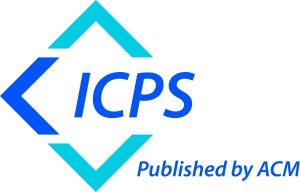
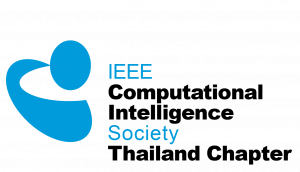
Prospective authors are invited to submit original, high quality manuscripts strictly formatted as per the new ACM Proceedings Template (downloadable from : https://www.acm.org/publications/taps/word-template-workflow) or available at “ACM proceedings template”. The submitted manuscripts should have a minimum of 5 pages. Although there is no strict upper bound on the maximum number of pages, we recommend having a maximum of 10 pages for expediting the review process. Kindly note that there are no overlength charges.
Paper submissions can be made via EasyChair at the following link: https://easychair.org/conferences/?conf=iait2021 . All the submissions must be done both in the PDF format along with the source files (either Word or LaTeX files). Since IAIT follows a strict double-blind peer-review process it is requested that the authors should not include their names and affiliations or any other personal identifiable information while submitting the initial version of their manuscript for review. Upon acceptance they will be allowed to include all the relevant information.
All the accepted and presented papers will be published by the reputed ACM ICPS Series having ISBN number 978-1-4503-9012-5 and indexed by all major databases like Scopus, ISI Web of Science (Thompson Reuters), Ei Compendex, etc.
IAIT follows a strict and rigorous double-blind peer review process where each submitted manuscript will be reviewed by at least 3 reviewers who are experts in their respective fields. The authors are expected to receive the full review within 30 days of their initial submission. The accepted manuscript must be revised, taking into consideration the referees’ comments and suggestions. All the revised manuscripts will undergo a second round of peer review process (if possible by the same reviewers) before inclusion in the conference proceedings. The authors will be given 15 days to revise their manuscript for resubmission.
The submission of a paper implies that it is original and has not been submitted and published elsewhere or currently under consideration somewhere else. In addition, at least one full registration is required per accepted paper, and the paper must be presented by an author if accepted.
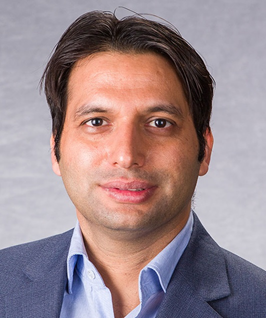
Department of Electrical and Computer Engineering, University of Kentucky, Lexington, KY, United States
Dr. Himanshu Thapliyal is an Associate Professor and Endowed Robley D. Evans Faculty Fellow with the Department of Electrical and Computer Engineering, University of Kentucky, Lexington, KY, USA. He is the Co-Director of the Cybersecurity Certification Program at the University of Kentucky. He received a Ph.D. degree in Computer Science and Engineering from the University of South Florida, Tampa, in 2011 where he received the ‘Distinguished Graduate Achievement Award’. From 2012-14, he worked as a designer of processor test solutions at Qualcomm, where he received the Qualcomm QualStar Award for contributions to memory built-in self-test. As per the publicly available database of 100,000 top-scientists released by researchers from Stanford University in PLOS Biology, he has been ranked in the top 50 among scientists throughout the world in the field of Computer Hardware & Architecture for the 2019 calendar year. He is the recipient of the 2020 Mid-Career Research Achievement Award from the Technical Committee on Very Large-Scale Integration (TCVLSI) of the IEEE Computer Society (IEEE-CS). He is the chair of the IEEE CTSoc technical committee on Application-Specific CE for Smart Cities (SMC).
He is the recipient of the NSF CAREER award. He received the Provost’s Wethington Award for contributions to the University of Kentucky Research Program. He has authored over 150 publications including more than 50 journal articles. His research works have over 4400 citations with h-index=38 (Google Scholar). He has received Best Paper awards at 2021 IEEE International Conference on Consumer Electronics (ICCE), 2020 IEEE World Forum on Internet of Things (WF-IoT), 2017 Cyber and Information Security Research Conference (CISR), and 2012 IEEE Computer Society Annual Symposium on VLSI (ISVLSI). He is the steering committee vice-chair of the IEEE Symposium on Smart Electronic Systems. He served as the General Chair of the 2020 IEEE Symposium on Smart Electronic Systems. He has served as the Program Chair of the 2020 IEEE International Conference on Consumer Electronics, 2019 IEEE Computer Society Annual Symposium on VLSI, and 2018 IEEE Symposium on Smart Electronic Systems. He co-founded the IEEE International Workshop on Quantum Computing: Circuits Systems Automation and Applications (QC-CSAA). He is serving as the Section Editor of the Springer Nature Computer Science and is leading two sections: (i) Quantum Computing and Emerging Technologies, and (ii) Emerging Trends in Sensors, IoT and Smart Systems. He is also serving as the Senior Associate Editor of the IEEE Consumer Electronics Magazine, Associate Editor of the IEEE Internet of Things Journal, and the editorial board member of the Microelectronics Journal. His research interests include hardware security of IoT and vehicles, the circuit design of emerging technologies including quantum computing, and smart healthcare.
Department of Electrical and Computer Engineering,
University of Kentucky, Lexington, KY, United States
(Click for more details)
Abstract : With the growth of Internet-of-Things (IoT) enabled smart systems, the potential threat vectors for malicious cyber-attacks are rapidly expanding. As an example of cyber-attack, software vulnerabilities could be exploited to remotely take control of safety-critical systems in the vehicle. These cyberattacks are threat to the reliability and safety of the smart systems, consumer’s personal information and piracy or cloning of intellectual property. As the IoT paradigm emerges, there are challenging requirements to design area-efficient, energy-efficient, and secure systems. Further, due to novel computing paradigms such as quantum computing there is a threat that the fundamental public-key cryptography tools could be broken. Considering these challenges, the talk would provide perspective towards the energy and cybersecurity constraints on smart systems and possible solutions for solving this important paradox
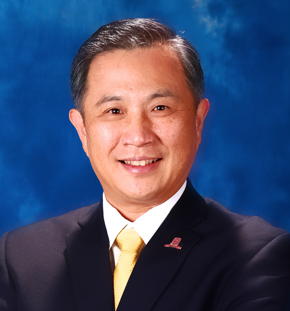
Department of Computer Science & Engineering, The Chinese University of Hong Kong
Prof. Irwin King is the Chair and Professor of Computer Science & Engineering at The Chinese University of Hong Kong. His research interests include machine learning, social computing, AI, web intelligence, data mining, and multimedia information processing. In these research areas, he has over 350 technical publications in journals and conferences. He is an IEEE Fellow, an ACM Distinguished Member, and a Fellow of Hong Kong Institute of Engineers (HKIE). He is also an Associate Editor of the Journal of Neural Networks (NN). He has served as the President of the International Neural Network Society (INNS), General Co-chair of The WebConf 2020, ICONIP 2020, WSDM 2011, RecSys 2013, ACML 2015, and in various capacities in a number of top conferences and societies such as WWW, NIPS, ICML, IJCAI, AAAI, APNNS, etc. He is the recipient of the ACM CIKM2019 Test of Time Award, the ACM SIGIR 2020 Test of Time Award, and 2020 APNNS Outstanding Achievement Award for his contributions made in social computing with machine learning. In early 2010 while on leave with AT&T Labs Research, San Francisco, he taught classes as a Visiting Professor at UC Berkeley. He received his B.Sc. degree in Engineering and Applied Science from California Institute of Technology (Caltech), Pasadena and his M.Sc. and Ph.D. degree in Computer Science from the University of Southern California (USC), Los Angeles.
Department of Computer Science & Engineering,
The Chinese University of Hong Kong
(Click for more details)
Abstract : Graph embedding refers to the problem of projecting the elements in a graph, including nodes, edges, substructures, or the whole graph, to a low-dimensional space while preserving the graph’s structural information. Graph embedding is an essential technique for analyzing various types of large-scale networks such as social networks, traffic networks, semantic networks, etc. To cope with the growing scale and diversifying structure of modern networks, researchers have proposed novel methods for graph embedding for feature engineering. In this talk, we present the recent advances and future directions in the theoretical development graph embedding and introduce some common applications for social network analysis, such as node classification, link prediction, community detection, and social recommendation.
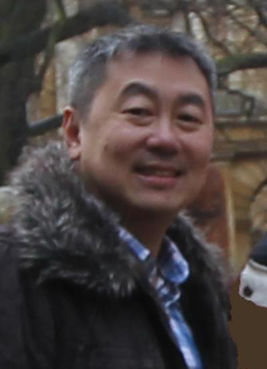
The Computer and Information Science Department, The University of Macau, Macau
Simon Fong graduated from La Trobe University, Australia, with a 1st Class Honours BEng. Computer Systems degree and a PhD. Computer Science degree in 1993 and 1998 respectively. Simon is now working as an Associate Professor at the Computer and Information Science Department of the University of Macau. He is a co-founder of the Data Analytics and Collaborative Computing Research Group in the Faculty of Science and Technology. Prior to his academic career, Simon took up various managerial and technical posts, such as systems engineer, IT consultant and e-commerce director in Austra lia and Asia. Dr. Fong has published over 432 international conference and peer-reviewed journal papers, mostly in the areas of data mining, data stream mining, big data analytics, meta-heuristics optimization algorithms, and their applications. He serves on the editorial boards of the Journal of Network and Computer Applications of Elsevier, IEEE IT Professional Magazine and various special issues of SCIE-indexed journals. Simon is also an active researcher with leading positions such as Vice-chair of IEEE Computational Intelligence Society (CIS) Task Force on "Business Intelligence & Knowledge Management", and Vice-director of International Consortium for Optimization and Modelling in Science and Industry (iCOMSI).
Research Interests : data mining, data stream mining, big data analytics, meta-heuristics optimization algorithms, and their applications
The Computer and Information Science Department,
The University of Macau, Macau
(Click for more details)
Abstract : We all want to have a perfect machine learning model for a perfect prediction. There exists unfortunately no universal ML model that suits all. Different applications would have their own performance requirements and unique characteristic of data. By a popular belief of no-free-lunch-theorem, no algorithm in fact is the best under all situations; likewise an algorithm works well outperforming others for one particular dataset may not generalize well in other cases. In this talk, from my two decades of experiences in data mining (well, not always successful), I will be sharing some tips and possibilities in crafting up a humbly-speaking a near-best ML model without reinventing the wheels, for solving supervised learning problems upon adaptive, multi-view, varying resolutions, real-time, big and perhaps super big data of different kinds. Techniques that fix the ins and outs of a ML model ranging from data pre-processing, smart data sampling to hyperparameter optimization are reviewed and shown to you, via a simple methodology called GROOMS for configuring your best bet for machine learning. Case studies of radiology-oriented cancer detection over medical images, IoT data stream mining for human activity recognition and even Lidar point cloud (spatial resolution 1 meter in radius per cycle gives you 800Mb of data!) for a self-flying UAV are presented and discussed. It is hoped that by using an adaptive approach, a ML model would be positioned at its best shape, when it is being applied in different situations.

Department of Computer Science & Engineering,
Jadavpur University, Kolkata, India
Susmita Ghosh received the B.Sc. (with Honors) in Physics and the B.Tech. in Computer Science and Engineering from the University of Calcutta, India, in 1988 and 1992, respectively, the M.Tech. in Computer Science and Engineering from the Indian Institute of Technology, Bombay, in 1994, and the Ph.D. (Engineering) from Jadavpur University, Kolkata, in 2004. She has visited various universities for collaborative research/ international projects and delivered lectures in different countries including Australia, China, Italy, Japan, Norway, Portugal, South Korea, Thailand, the UK and the USA. She has published about 90 research papers in internationally reputed journals and referred conferences and has edited 3 books. She serves/ served as the Principal Investigator of several research projects funded by government agencies of National/ International repute (including ASEAN, India Trento Programme for Advanced Research, Erasmus Mundus Project). Presently she is the Chair of IEEE GRSS Kolkata Chapter. She is an Associate Editor of two International Journals and serves as Technical/ Programme/ Advisory Committee Member/ Track Chair/ Session Chair of many national and international conferences.
Susmita Ghosh was a Lecturer and then an Associate Professor with the Department of Computer Science and Engineering, Jadavpur University since 1997. She is a Full Professor at the same department since 2010. Her research interests include Computational Intelligence, Pattern Recognition and Machine Learning, Data Science and Big Data Analysis, Image and Video Analysis, and Cognitive Computing.
Department of Computer Science & Engineering,
Jadavpur University, Kolkata, India
(Click for more details)
THEME: Women in Science and Technology
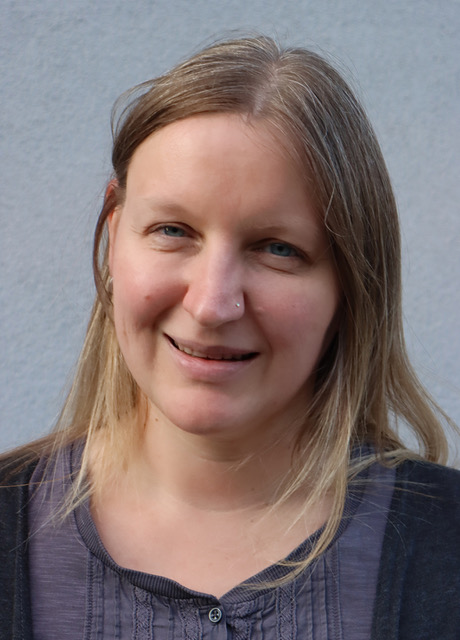
The E-Commerce Research Unit, TU Wien, Austria
Julia Neidhardt is a researcher at the E-Commerce Research Unit at TU Wien, Austria and at the Austrian Academy of Sciences. Her research focuses on modeling and predicting complex human behavior, user opinions, preferences and social relations as well as their dynamics in digital-enabled environments. In recent projects, she studied social influence mechanism in online communities, the diffusion of topics, opinions and sentiments, team performance and travel recommender systems. She is a co-author of the Vienna Manifesto on Digital Humanism and has co-organized several events on Digital Humanism.
The E-Commerce Research Unit, TU Wien, Austria
(Click for more details)

COO and Co-Founder at Jitta
Pornthip is the COO with Jitta.com. In her role, she is focused on strategic, practical growth, partner business developments, sales and marketing as well as daily management of the company’s operations.
Prior to Jitta.com, she was Head of Thailand Marketing at Google where she built and led Google business in Thailand to achieve short, long-term business goals and built the brand with love and passion. She spent nearly 10 years with Google, before moving back to her hometown where she worked in Singapore with the Southeast Asian team to develop the regional business partnership across Google’s products including Google Finance, Search, Maps and Mobile.
Prior to Google, she was Partner Account Manager at Microsoft to build partner ecosystem and drive sales revenue in mid and small businesses. She also worked for Mono Group in Thailand and led the digital media and contents, where she first started her career path in technology.
COO and Co-Founder at Jitta, Thailand
(Click for more details)
Abstract : Startup across the world have felt the brunt of COVID-19 and Thailand’s robust entrepreneurial landscape has been among the hardest hit. Jitta Wealth attempted to pivot to offer a global thematic investments with the automated system strategies that fit perfectly into the current socially-distanced wealth management.
We have risen to the occasion and adopted unique survival strategies to tide over the crisis. In this session, I’ll dive into some common business strategies that companies have adopted in order to survive and thrive during the pandemic. How we turn the crisis into the opportunity.
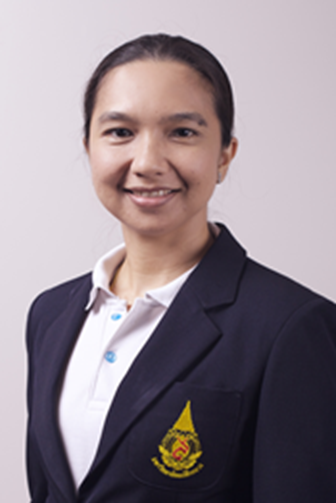
The School of Information Technology, Mae Fah Luang University, Thailand
Punnarumol Temdee, Ph.D. received B.Eng. in Electronics and Telecommunication Engineering, M. Eng in Electrical Engineering, and Ph.D. in Electrical and Computer Engineering from the King Mongkut's University of Technology Thonburi. She is currently an Associate Professor at the School of Information Technology, Mae Fah Luang University, Chiang Rai, Thailand. She is also the head of Computer and Communication Engineering for Capacity Building Research Center (CCC) and associate editor of Wireless Personal Communications International Journal. Her research interests are artificial intelligence and its applications, data classification, personalized learning, and personalized healthcare.
The School of Information Technology, Mae Fah Luang University, Thailand
(Click for more details)
Abstract : The personalized environment is one of the applications of context-aware computing where different types of contexts are used for triggering activities satisfied by the user. Artificial Intelligence deals with a lot of data and manipulates them to provide the smart decision ubiquitously both on-device and on-demand. This talk focuses on demonstrating the examples of the personalized environment in 2 different domains including learning and healthcare. Personalized learning is the novel pedagogical approach for the smart learning environment. Since the learners are different, they deserve different learning paces to explore themselves in the virtual learning environment. At the same time, personalized healthcare can transform patients’ lives by delivering care customized to the individual. Both environments need to know who the user is and provide what they need. From the sense of context-aware computing, both environments share some common components especially in terms of context acquisition, manipulation, and delivery. From the sense of AI, both of them share common tasks including user modeling and recommendation provision.
History of the conference :
